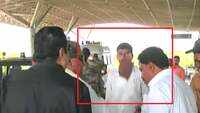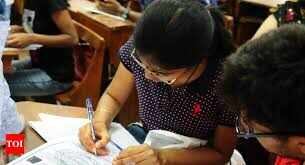
Thiruvananthapuram: The capital will soon get fully-mechanized resource recovery centres (RRC). The project, which will be funded by the United Nations Development Programme (UNDP) aims at mechanization of different processes like segregation, washing, drying and packing of dry waste.
In a meeting held here on Wednesday, which was attended by officials of Haritha Keralam Mission, city corporation, UNDP and Suchitwa Mission, it was decided to implement the project at Muttathara RRC.
“Thiruvananthapuram corporation will be the first civic body in the state to have a fully-mechanized RRC. This will be run by Clean Kerala Company,” said T N Seema, vice-chairperson, Haritha Keralam Mission.
The city corporation has suggested Muttathara and Vallakadavu RRCs for the project. Dry waste, which will be segregated for final recycling, can be stored at Vallakadavu.
The corporation presently runs four RRCs and 50 material recovery facilities (MRF) in the city. Seven more RRCs are also set to be launched at different wards in the city. The dry waste collection hub, recently launched by city corporation, was a huge success prompting the civic body to launch more such hubs.
Mechanized conveyor belts will be the major feature to be introduced at the Muttathara RRC. “The conveyor belt will ensure segregation of items, especially plastic, based on various grades. Each staff at the RRC will be able to sort different kinds of plastic waste based on its value. For instance segregation of high density polyethylene, low-density polyethylene, and polypropylene could be easily sorted with the conveyor belts. Dryers and washers are also in the pipeline,” said a corporation official. The RRC at Muttathara already has shredders and dust removers.
The corporation collects dry waste of different categories at its MRFs and through special collection drives. RRCs are used for final segregation and storage from where recyclers transport the waste to designated places. The officials said that although strict segregation code is maintained during dry waste collection drive, people still tend to mix up waste and at mechanized RRCs, this problem could be addressed. UNDP has come up with this project as a value addition strategy for dry waste collection and transportation.
Materials of high recyclable value under different categories can be sorted out at mechanised RRCs and the plan is to develop this into a good business model in the next two-three years, the officials added. Officials with the health wing estimate that collection and transportation of plastic waste through RRC accounts for 20-30% of the actual cost being incurred for disposal of dry waste from households in the city.
The civic body is already in the process of finalizing an agreement with a firm to transport non-recyclable plastic waste as part of ‘co-processing’ of plastic waste in cement kilns. The civic body is going ahead with the project in compliance with the guidelines issued by central pollution control board.
In a meeting held here on Wednesday, which was attended by officials of Haritha Keralam Mission, city corporation, UNDP and Suchitwa Mission, it was decided to implement the project at Muttathara RRC.
“Thiruvananthapuram corporation will be the first civic body in the state to have a fully-mechanized RRC. This will be run by Clean Kerala Company,” said T N Seema, vice-chairperson, Haritha Keralam Mission.
The city corporation has suggested Muttathara and Vallakadavu RRCs for the project. Dry waste, which will be segregated for final recycling, can be stored at Vallakadavu.
The corporation presently runs four RRCs and 50 material recovery facilities (MRF) in the city. Seven more RRCs are also set to be launched at different wards in the city. The dry waste collection hub, recently launched by city corporation, was a huge success prompting the civic body to launch more such hubs.
Mechanized conveyor belts will be the major feature to be introduced at the Muttathara RRC. “The conveyor belt will ensure segregation of items, especially plastic, based on various grades. Each staff at the RRC will be able to sort different kinds of plastic waste based on its value. For instance segregation of high density polyethylene, low-density polyethylene, and polypropylene could be easily sorted with the conveyor belts. Dryers and washers are also in the pipeline,” said a corporation official. The RRC at Muttathara already has shredders and dust removers.
The corporation collects dry waste of different categories at its MRFs and through special collection drives. RRCs are used for final segregation and storage from where recyclers transport the waste to designated places. The officials said that although strict segregation code is maintained during dry waste collection drive, people still tend to mix up waste and at mechanized RRCs, this problem could be addressed. UNDP has come up with this project as a value addition strategy for dry waste collection and transportation.
Materials of high recyclable value under different categories can be sorted out at mechanised RRCs and the plan is to develop this into a good business model in the next two-three years, the officials added. Officials with the health wing estimate that collection and transportation of plastic waste through RRC accounts for 20-30% of the actual cost being incurred for disposal of dry waste from households in the city.
The civic body is already in the process of finalizing an agreement with a firm to transport non-recyclable plastic waste as part of ‘co-processing’ of plastic waste in cement kilns. The civic body is going ahead with the project in compliance with the guidelines issued by central pollution control board.
Trending Topics
LATEST VIDEOS
City
 Former CM Siddaramaiah slaps party worker at an event in Karnataka
Former CM Siddaramaiah slaps party worker at an event in Karnataka  Madhya Pradesh: Young tribal woman beaten up, paraded half-naked over inter-caste affair; video goes viral
Madhya Pradesh: Young tribal woman beaten up, paraded half-naked over inter-caste affair; video goes viral  Caught on cam: Youth Congress leader assaults hotel employee in Madhya Pradesh, pushes him inside drain for not giving matchbox
Caught on cam: Youth Congress leader assaults hotel employee in Madhya Pradesh, pushes him inside drain for not giving matchbox  Suspected of theft, boy thrashed, stripped in Delhi bus
Suspected of theft, boy thrashed, stripped in Delhi bus
More from TOI
Navbharat Times
Featured Today in Travel
Quick Links
Lok Sabha Election Schedule 2019Lok Sabha Election NewsDelhi Capitals teamMI team 2019Rajasthan Royals 2019RCB team 2019Maharashtra Lok Sabha ConstituenciesBJP Candidate ListBJP List 2019 TamilnaduShiv Sena List 2019AP BJP List 2019Mamata BanerjeeBJP List 2019 MaharashtraPriyanka GandhiBJP List 2019 KarnatakaAMMK Candidate List 2019BJP List 2019 WBLok Sabha Elections in Tamil NaduBSP List 2019 UPNews in TamilLok Sabha Poll 2019Satta Matka 2018PM ModiMahagathbandhanNagpur BJP Candidate ListChandrababu NaiduTamil Nadu ElectionsUrmila MatondkarNews in TeluguMadras High CourtTejashwi YadavArvind KejriwalTejasvi SuryaPawan KalyanArvind KejriwalYogi AdityanathJaya PradaSatta King 2019Srinagar encounter
Get the app



